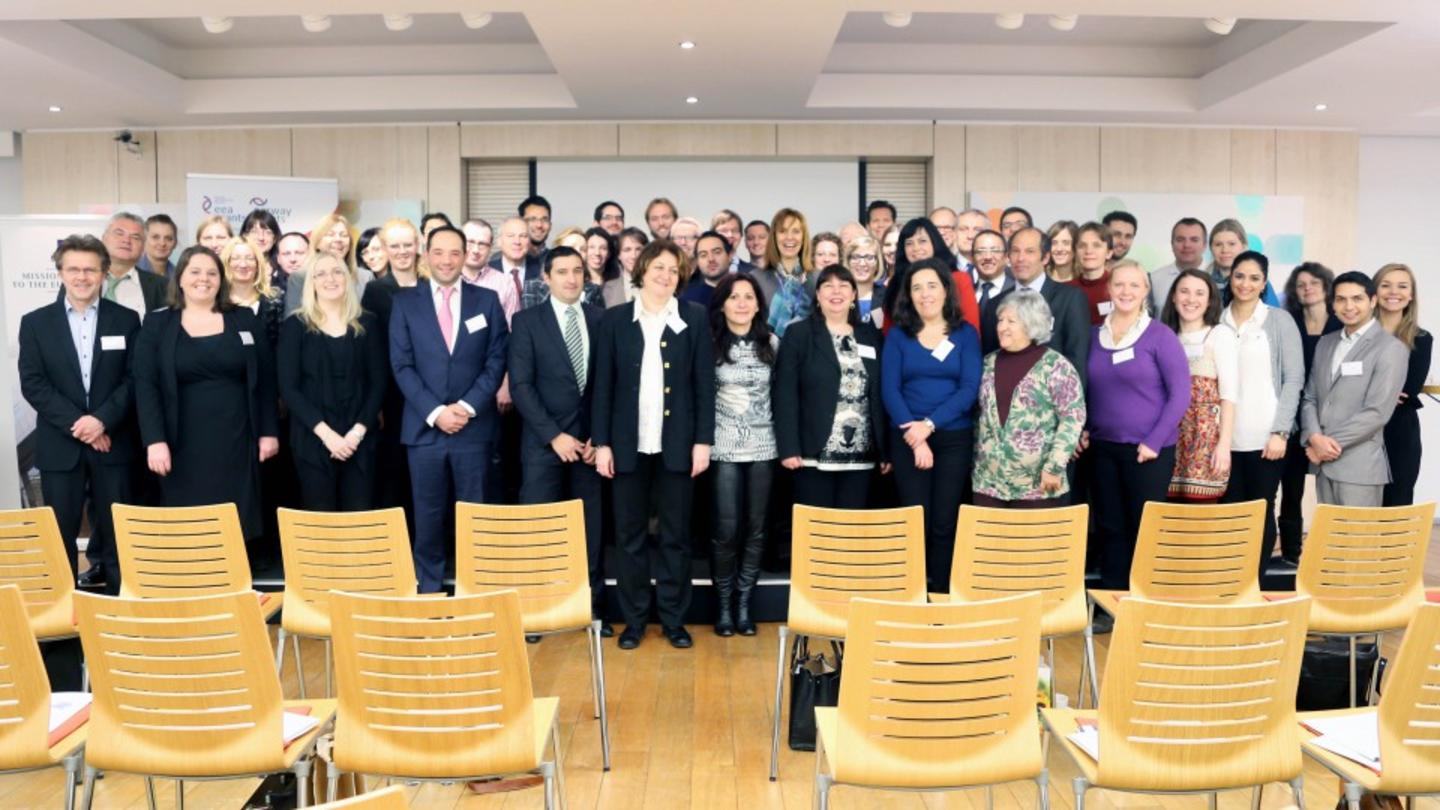Through the EEA Grants, Iceland, Liechtenstein and Norway support 30 programmes devoted to energy and the environment. During the one-day workshop, representatives from the programmes had the opportunity to network, exchange thoughts and share experiences.
Meeting targets
Among the Programme Operators participating in the workshop were representatives from Poland. Poland’s three programmes on energy efficiency and renewable energy, environmental monitoring, and biodiversity, include over 100 project agreements. Among these are several large projects, such as the carbon emission reduction efforts at the Siekierki power plant, the largest combined heat and power plant in Europe. Ms Aleksandra Przyluska from the Ministry of the Environment of Poland notes, however, that smaller projects can also have a large impact.
“The support from the EEA Grants has enabled us to fill important gaps that cannot be covered with other funding mechanisms,” explains Ms Przyluska,
“This is particularly true many small-scale projects which allow smaller governing bodies, such as cities and towns, to reduce the operating costs of public buildings through modernisation and increased energy efficiency. With the support from the Grants these bodies are now well on their way to meet the 2020 energy targets.”
Close partnership
Poland and Norway cooperate closely when it comes to the environment.
“It is amazing to have contacts with people working in the same field. We have found that both Poland and Norway have similar challenges to solve,” says Ms Przyluska.
“We have a good cooperation with the Norwegian Environment Agency, which is a Donor Programme Partner under the environmental monitoring programme, as well as the Norwegian Ministry for the Environment.”
Preparations for next year’s activities are already in the pipeline.
“We had a recent meeting in Gdansk with our Norwegian partners where we discussed in detail how to implement study visits for experts between the two countries with support from the bilateral funds, explains Ms Przyluska who holds a positive view for the future:
“We are on track for a fruitful new year with many possibilities for sharing both knowledge and experiences.”
Communicating the benefits
Donor Programme Partners showed interest in the workshop as well. Among those represented was the Icelandic National Energy Authority (NAE) which supports renewable energy programmes in Hungary, Portugal and Romania. Mr Baldur Pétursson from the NAE notes that the projects are up to a good start, mentioning the the Azores project as a good example of geothermal cooperation.
“We have also received significant interest for cooperation from other countries, such as Poland,” adds Pétursson.
Pétursson emphasises the importance of communicating the benefits of harnessing renewable energy such as geothermal:
“The benefit of renewable energy reaches across society as a whole. Geothermal projects are generally large and complex. However, they are both beneficial and strategically important. They have a very low operating cost, are environmentally friendly and contribute to increased energy security. Informing the public about the benefits of this energy source is essential and can be achieved through many different channels, including education.”
Read more about the ‘Biodiversity and Ecosystem Services’ programmes
Read more about the ‘Environmental Monitoring and Integrated Planning and Control´ programmes
